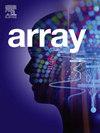Bleeding alert map (BAM): The identification method of the bleeding source in real organs using datasets made on mimicking organs
Abstract
In thoraco-laparoscopic surgery, the identification of a bleeding source is recognized as one of the most important issues with hemostasis during operation. However, previously proposed techniques are only capable of detecting an approximate bleeding region, not the precise location itself. To develop a system which can accurately localize a bleeding source, post-bleeding images and their corresponding bleeding source information may be required. However, to pinpoint bleeding sources from actual thoraco-laparoscopic surgery images is no easy task even for an experienced surgeon. In previous studies, a surgeon could only provide rectangular region information around a bleeding source. To address the problem, we have developed a mimicking device that simulates bleeding from a vessel on an artificial organ for obtaining bleeding images and precise bleeding source information at the same time. Using this information, we constructed a Generator that can associate a bleeding image with the corresponding bleeding source by using Pix2Pix and created a “bleeding alert map (BAM)” which concerns the Predicted intensity of bleeding source in the endoscopic view. The Generator successfully created BAMs from ex vivo lung bleeding images as well as actual organ bleeding images captured in thoracoscopic surgeries. The results showed that the BAM Generator constructed only by using the data from the mimicking device was effective in processing bleeding images from actual organs to identify bleeding sources. The proposed system may be utilized during endoscopic surgery to present a BAM which carries important information for hemostasis.

 求助内容:
求助内容: 应助结果提醒方式:
应助结果提醒方式:


